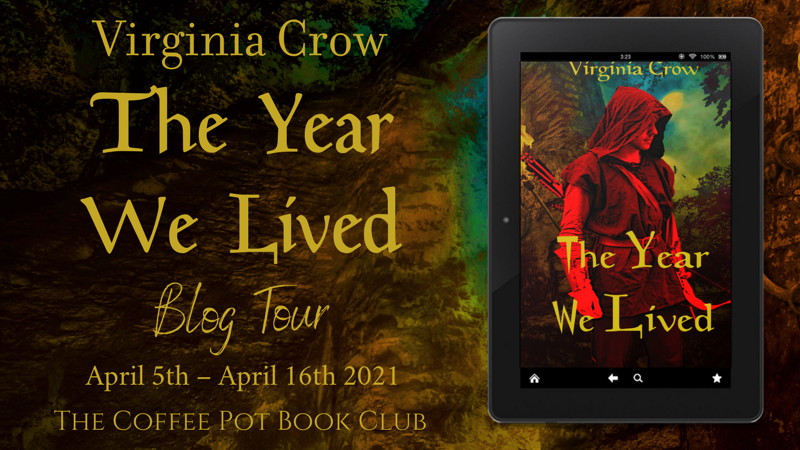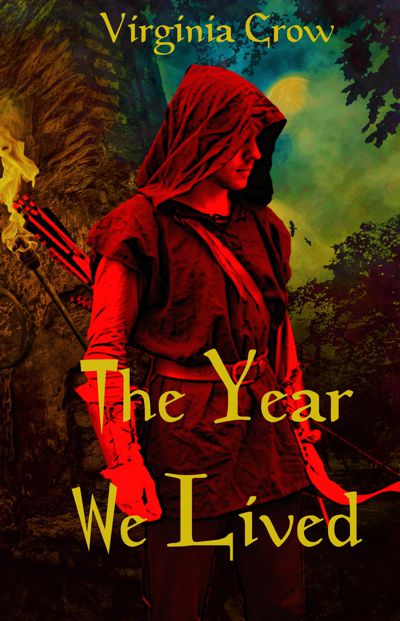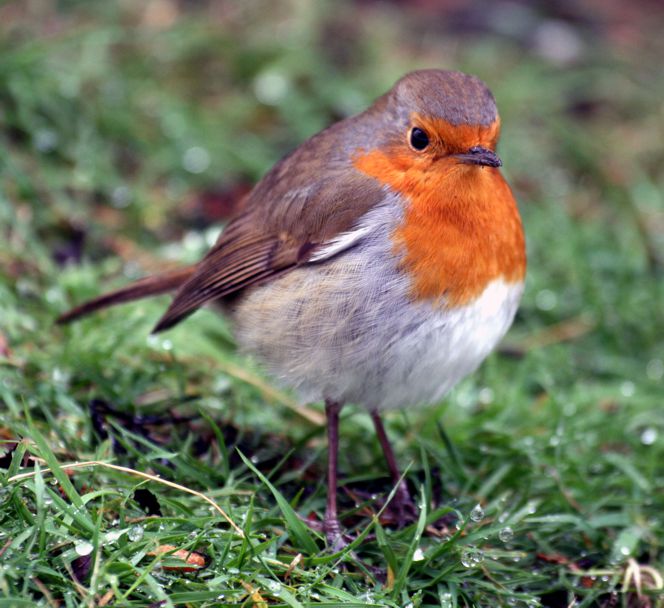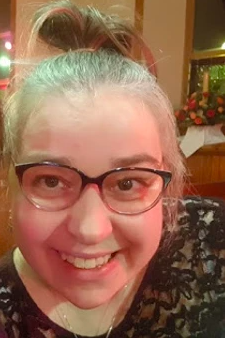
It is 1074, 8 years after the fateful Battle of Hastings. Lord Henry De Bois is determined to find the secret community of Robert, an Anglo-Saxon thane. Despite his fervour, all his attempts are met with failure.
When he captures Robert’s young sister, Edith, events are set in motion, affecting everyone involved. Edith is forced into a terrible world of cruelty and deceit, but finds friendship there too.
Will Robert ever learn why Henry hates him so much? Will Edith’s new-found friendships be enough to save her from De Bois? And who is the mysterious stranger in the reedbed who can disappear at will?
A gripping historical fiction with an astonishing twist!

Historical Aspect of the Story – Bird Lore in 1074
In today’s modern world, it’s sometimes difficult to comprehend how much weight was put onto the realm of magic, nature lore and superstition. One of the most interesting aspects of research for The Year We Lived was looking into these things. While the book is predominantly the story of a Saxon household against a Norman one, both sides have people who live by, or play up to, these superstitions.
Bird lore is tightly interwoven in the story, with two of the characters claiming an ability to speak with the frequently visiting robin. The Anglo-Saxons put great story by the nature of birds, something which seeped into the story quite naturally. While I was researching this, I wandered into the realm of Anglo-Saxon poetry and found an amazing research paper all about the links between bird lore and spirituality. That was it – I was sold to this idea! My undergrad degree (many years ago now!) was in Theology, and I was pretty confident with handling the church history and law which the story required. But the interweaving of Christianity and bird lore was a whole new world to me!

Cue: the robin. The robin in The Year We Lived is a character in its own right. The Anglo-Saxons called robins: ruddocks. This discovery suddenly made the diminutive dunnock’s name make sense! But, aside from this, the robin is also one of the birds which bridged the Christian, Viking, and Celtic beliefs in birds as being something more. There are a whole host of robin myths in Christianity, amongst these are the belief it’s the blood of Christ which has caused the robin to have a red breast, or that the flames of purgatory burnt it as it tried to provide water to souls in torment. In Norse mythology, the robin was thought of as Thor’s bird, and would protect you from lightning. Celtic mythology has almost the exact opposite of what we’re used to seeing robins as now, celebrating the robin as the embodiment of summer. The Normans had a different view:
“A robin,” Ellen remarked dismissively. She moved towards the window to frighten it away but stopped as Edith took her sleeve.
“He’s looking for his love,” she whispered, unable to produce a greater sound after so long in silence. “He’s red all over but wears a cloak and a cowl to disguise himself.” She smiled slightly as the bird opened its tiny beak and gave a scolding call. “But his cloak can’t conceal the fire he has in his chest for his love.”
As the title suggests, The Year We Lived spans twelve months. The significance of the natural world and the superstition which ties in with it runs all the way through, drawing in the good and the bad of the superstitions which were second nature to the people of the time.
But, as well as learning the mythology of the individual birds, I loved how early English allegorical poetry used birds to represent the concept of thought and the mind. And it makes sense! After all, we still talk about our thoughts taking wing. With beliefs like this as commonplace, people had a far greater respect and connection to the land. They lived more with the land than on it. The mutual relationship between Man and Nature which existed in England at this time was beginning to come to an end. It certainly didn’t happen all of a sudden, but the Norman conquest did speed-up the process of urbanisation. I was a little bit sad I researched the bird lore of this time. Usually when I do historical research for my books, I can see the benefits of how civilisation has progressed (despite my ideological ideas of the past), but I was disappointed by how little of that connection between Man and Nature has lasted. Hopefully one day some of these thoughts will be accepted again, because they’re pretty awesome concepts, and there’s so much to learn from them.
Amazon UK • Amazon US • Amazon CA • Amazon AU • Crowvus •
Barnes and Noble • Waterstones • Kobo • Smashwords •
Meet Virginia Crow

Virginia grew up in Orkney, using the breath-taking scenery to fuel her imagination and the writing fire within her. Her favourite genres to write are fantasy and historical fiction, sometimes mixing the two together such as her newly-published book “Caledon”. She enjoys swashbuckling stories such as the Three Musketeers by Alexandre Dumas and is still waiting for a screen adaption that lives up to the book!
When she’s not writing, Virginia is usually to be found teaching music, and obtained her MLitt in “History of the Highlands and Islands” last year. She believes wholeheartedly in the power of music, especially as a tool of inspiration. She also helps out with the John O’Groats Book Festival which is celebrating its 3rd year this April.
She now lives in the far flung corner of Scotland, soaking in inspiration from the rugged cliffs and miles of sandy beaches. She loves cheese, music and films, but hates mushrooms.
Connect with Virginia
Website: https://www.stompermcewan.com
Twitter: https://twitter.com/DaysDyingGlory
Facebook: https://www.facebook.com/DaysDyingGlory
Instagram: https://www.instagram.com/stompermcewan
BookBub: https://www.bookbub.com/profile/virginia-crow
Amazon Author Page: https://www.amazon.co.uk/Virginia-Crow/e/B078QBNYFB
Goodreads: https://www.goodreads.com/author/show/16049964.Virginia_Crow
Thank you so much for hosting me on your brilliant blog! I hope your readers enjoy the post!
📚